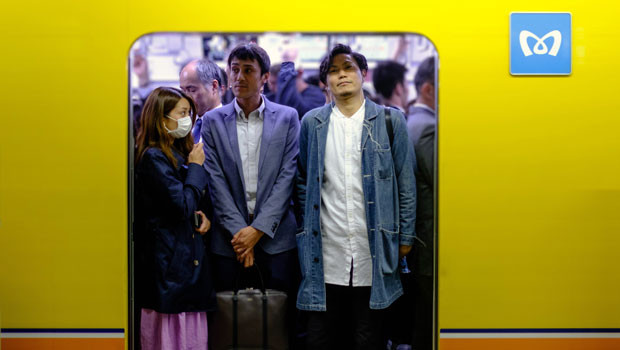Asia report: Most markets rise on news of US-Japan deal

Markets across the Asia-Pacific region advanced on Wednesday, led by sharp gains in Japan after US president Donald Trump announced a new trade deal with the country, easing tariffs on Japanese exports.
23 July 2025 11:33:01
Source: Sharecast
Patrick Munnelly, market strategy partner at TickMill Group, said a surge in Japanese stocks boosted Asian markets after Trump revealed a trade agreement with Japan, sparking optimism for more deals, helping to ease the disappointment from US earnings impacted by increased tariffs.
“On Tuesday, Trump announced that Japan would benefit from a reduced 15% tariff on exports to the US,” he noted.
“This came after a deal with the Philippines, where the US will implement a 19% tariff on imports from that country.”
Japanese government bonds fell, with the yields on 10-year bonds rising significantly by 8.5 basis points to 1.585%, as Munnelly said the reduced uncertainty “cleared the way” for the Bank of Japan to start raising interest rates again.
“Traders are anxious as Japanese Prime Minister Shigeru Ishiba is expected to soon decide whether to resign after evaluating the outcome of the trade deal, according to the Yomiuri newspaper.”
Most markets in the green on news of US-Japan deal
Japan’s Nikkei 225 soared 3.59% to close at 41,201.00, while the broader Topix index rose 3.18% to 2,926.38.
Shares of automakers surged after reports that the US had lowered tariffs on Japanese autos to 15% from 25%.
Mazda Motor jumped 17.77%, Subaru climbed 16.61%, and Toyota Motor rallied 14.34%.
The announcement boosted sentiment across the region, aided by another record close on Wall Street’s S&P 500 overnight.
In Hong Kong, the Hang Seng Index rose 1.62% to 25,538.07, with tech names leading the charge.
Kuaishou Technology rose 7.08%, Baidu added 6.08%, and Tencent Holdings gained 4.94%.
Mainland China markets saw a mixed performance - the Shanghai Composite edged up 0.01% to 3,582.30, led by gains in steel and infrastructure stocks including Xining Special Steel and Power Construction Corp, both up over 10%.
However, the Shenzhen Component fell 0.37% to 11,059.04.
South Korea’s Kospi 100 advanced 0.48% to 3,211.76.
Automakers were among the top performers in Seoul, with Hyundai Motor up 7.51% and Kia Corporation rising 8.49%.
In Australia, the S&P/ASX 200 rose 0.69% to 8,737.20, lifted by strong performances in coal, agriculture, and gaming stocks.
Whitehaven Coal gained 6.53%, Elders rose 6.19%, and SkyCity Entertainment climbed 5.68%.
New Zealand’s S&P/NZX 50 bucked the regional trend, slipping 0.31% to 12,794.06.
Declines in Oceania Healthcare, Infratil, and Tourism Holdings weighed on the index.
In currencies, the dollar was last down 0.15% on the yen to trade at JPY 146.41, as it lost 0.49% against the Aussie to AUD 1.5179, and retreated 0.64% from the Kiwi, changing hands at 1.6555.
Oil prices slipped, with Brent crude futures last down 0.66% on ICE at $68.14 per barrel, and the NYMEX quote for West Texas Intermediate falling 0.73% to $64.83.
Japan PM reportedly preparing resignation, Korean consumer sentiment rises
At the top of the news agenda were reports that Japan’s prime minister Shigeru Ishiba was preparing to step down by August, according to local media, following a major political setback and fresh trade developments with the United States.
The Mainichi newspaper reported that Ishiba intended to announce his resignation within weeks, citing sources familiar with his thinking.
It came shortly after Donald Trump declared a “massive Deal” with Japan on tariffs, and just days after Ishiba’s ruling coalition lost its majority in the upper house.
Earlier reports from the Yomiuri newspaper had indicated Ishiba would assess the outcome of tariff negotiations before making a final decision on his political future.
In South Korea, consumer sentiment strengthened for a fourth consecutive month in July, reaching its highest level since January 2018.
The composite consumer sentiment index rose to 110.8 from 108.7 in June, buoyed by optimism over a newly elected government and anticipated economic stimulus, including a proposed supplementary budget.
Confidence was further supported by ongoing trade talks with the US, with South Korea’s national security adviser currently in Washington and additional negotiations set for 25 July.
All major components of the sentiment index improved, while inflation expectations remained steady, with one-, three-, and five-year forecasts anchored at 2.4%.
Singapore’s inflation meanwhile remained subdued in June, with headline consumer prices rising just 0.8% year-on-year, matching the previous month and falling short of the 0.9% expected by economists.
Core inflation, which excludes accommodation and private transport, also held steady at 0.6%.
The low readings came ahead of a key monetary policy decision later this month and are likely to give the Monetary Authority of Singapore more room to ease policy if needed.
In a report published on 15 July, the central bank noted that core inflation had “eased significantly to below 1% in the first five months of this year, coming in below expectations”.
Reporting by Josh White for Sharecast.com.
